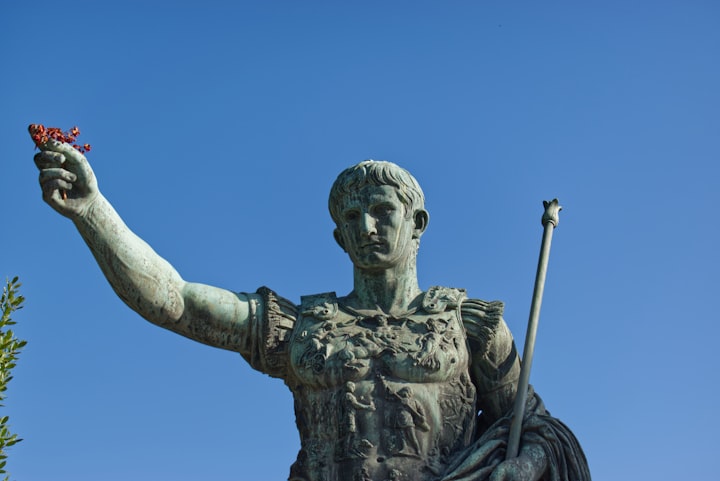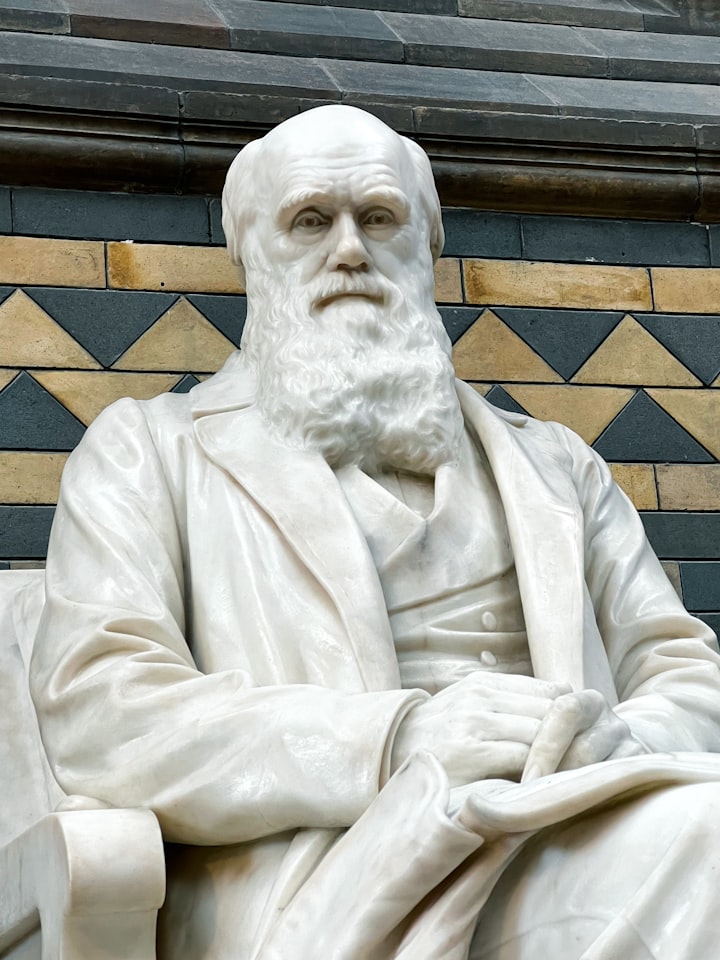Who was Julius Caesar?
A short summary of the life of Julius Caesar

Julius Caesar was a towering figure in ancient Rome whose life and actions changed the direction of Roman history. He was born on July 12 or 13, 100 BCE. His ascent to power, military triumphs, and events leading up to his assassination are legendary stories that continue to captivate people throughout the world. In this article, we will look at Julius Caesar's life, accomplishments, and terrible death as one of history's most prominent leaders.
Julius Caesar was born in Rome into a prominent patrician family, the Julii. Despite his family's lack of income or political clout, Julius had a good education and profited from the connections of his family members. During his early career, he held roles in the Roman military, where he demonstrated excellent leadership and strategic talents.
When Caesar became a military tribune and, later, quaestor, his political career took off. He quickly ascended the ranks, eventually becoming governor of Gaul (modern-day France, Belgium, and parts of Switzerland and Italy). His successful wars in Gaul enlarged Roman holdings and enriched his coffers, elevating him to a position of prominence in Roman affairs.
Caesar's political ambitions led him to form the First Triumvirate with two other powerful Roman politicians, Gnaeus Pompeius Magnus (Pompey) and Marcus Licinius Crassus. This unofficial collaboration enabled them to consolidate control and further their own objectives.
Caesar was elected consul in 59 BCE during this time period. He utilized his position to enact several key reforms, including the transfer of property to veterans and the expansion of citizenship rights to Roman territory residents. These measures earned him both popular support from the Roman people and the wrath of his political opponents.
Caesar's most famous accomplishments occurred during his command of the Gallic Wars (58-50 BCE). His conquest of Gaul not only increased Roman territory but also established him as a military genius. His Commentarii de Bello Gallico (Commentaries on the Gallic War) recount his campaigns, strategies, and views.
Despite his absence from Rome during this time, Caesar's political power grew. However, tensions within the First Triumvirate began to emerge, resulting in Crassus' death in 53 BCE and increasing hatred between Caesar and Pompey.
As Caesar's power and influence expanded, so did the fear of his political opponents in Rome. The Senate asked that he disband his army and return to Rome in 49 BCE, which he refused. This signaled the start of a civil war between Caesar's army and the Senate's loyalists, led by Pompey.
Julius Caesar was assassinated on March 15, 44 BCE, in a conspiracy hatched by several important senators, including Brutus and Cassius. This dramatic incident, immortalized in William Shakespeare's play "Julius Caesar," sparked a power struggle in Rome and laid the groundwork for future civil conflicts.
The legacy of Julius Caesar is varied and far-reaching. His military prowess, political reforms, and charismatic leadership etched their names in Roman history. Here are a few examples of his enduring influence:
Transition from Republic to Empire: Caesar's assassination signaled the end of the Roman Republic. The power vacuum and subsequent civil wars eventually led to the formation of the Roman Empire, commanded by Caesar's adopted successor, Octavian (after known as Augustus).
Caesar's legacy lives on in our daily lives through the Julian calendar, which he changed in 45 BCE. The calendar served as the foundation for the present Gregorian calendar, which has 365 days and leap years.
Military Strategy: Throughout history, military leaders have studied and respected Caesar's unique military tactics and methods. His Commentaries on the Gallic War are still required reading for military historians.
Political Leadership: Caesar's authoritarian leadership paved the way for subsequent Roman emperors and autocrats. His political initiatives, such as the extension of citizenship privileges, helped to shape Roman society.
Literary Influence: Throughout the centuries, Julius Caesar's life and death have inspired many works of literature, drama, and art. His story continues to arouse interest and inquiry in the arts and popular culture.
Julius Caesar's life was distinguished by ambition, political maneuvering, military conquests, and, tragically, assassination. His reputation as a leader, military commander, and political reformer has left an indelible mark on Roman history and the world at large. His name is indelibly synonymous with power, ambition, and the complicated dynamics of ancient leadership, making him one of history's most legendary personalities.
About the Creator
John Ammerlane
I love writing about historical figures and events, but also about trivia, geekiness and (weird) sillyness.






Comments (1)
Good job!